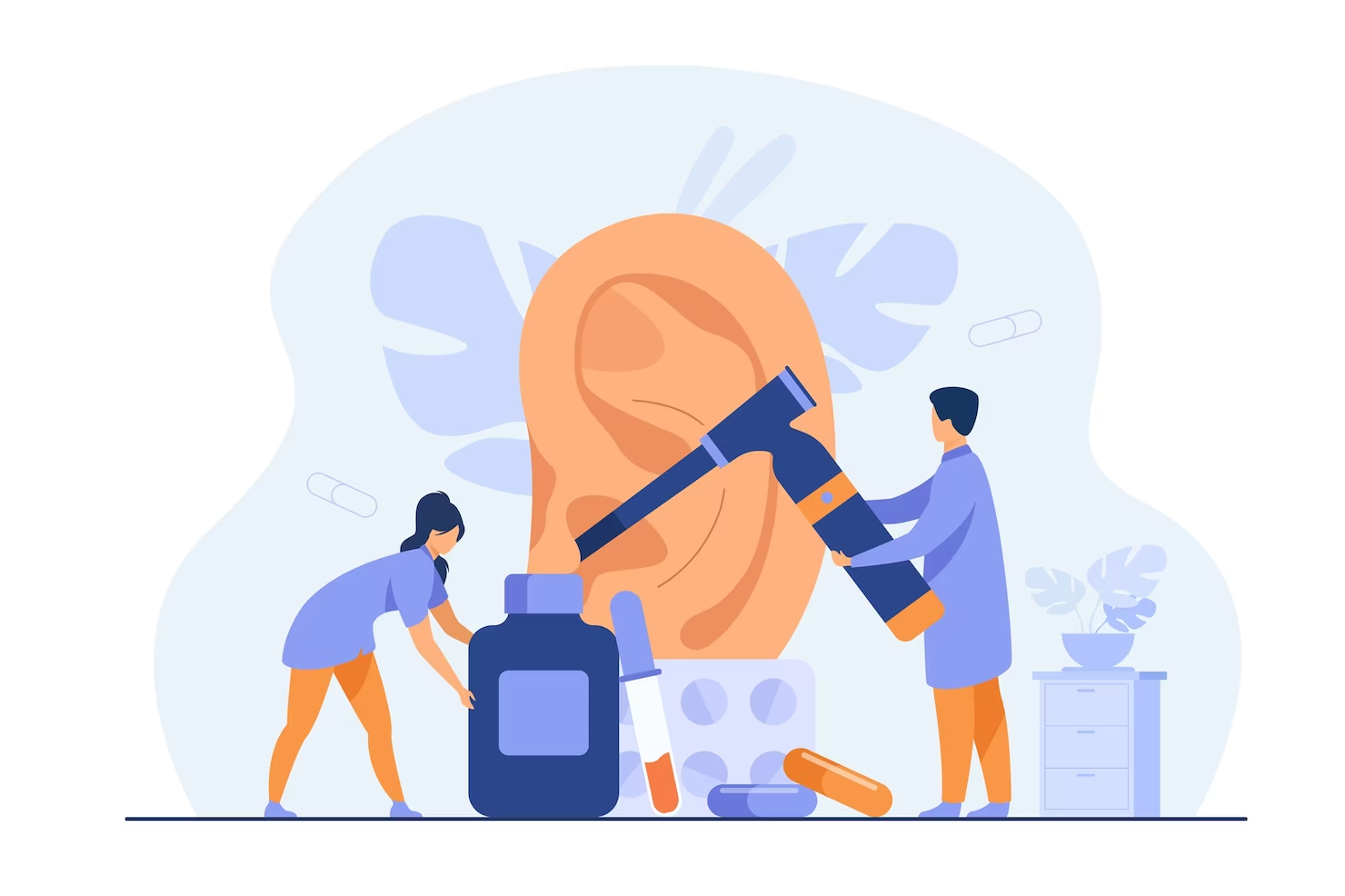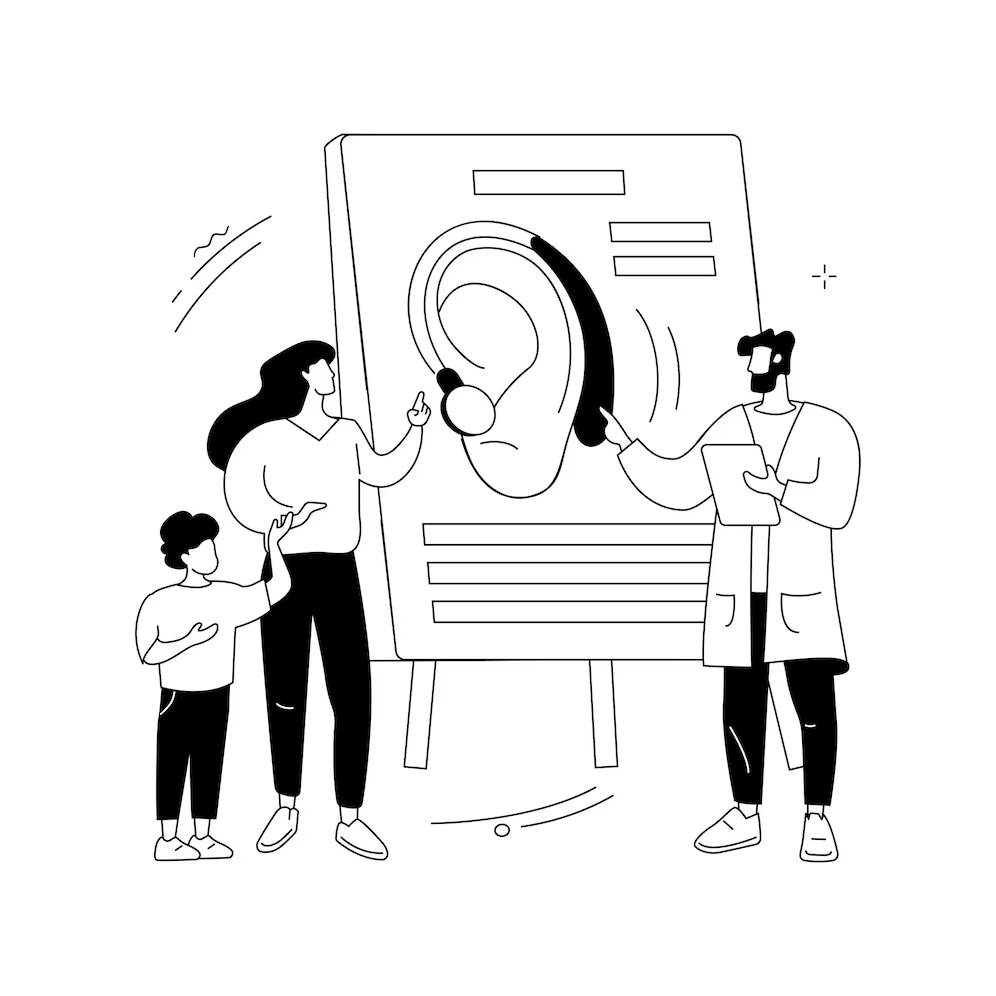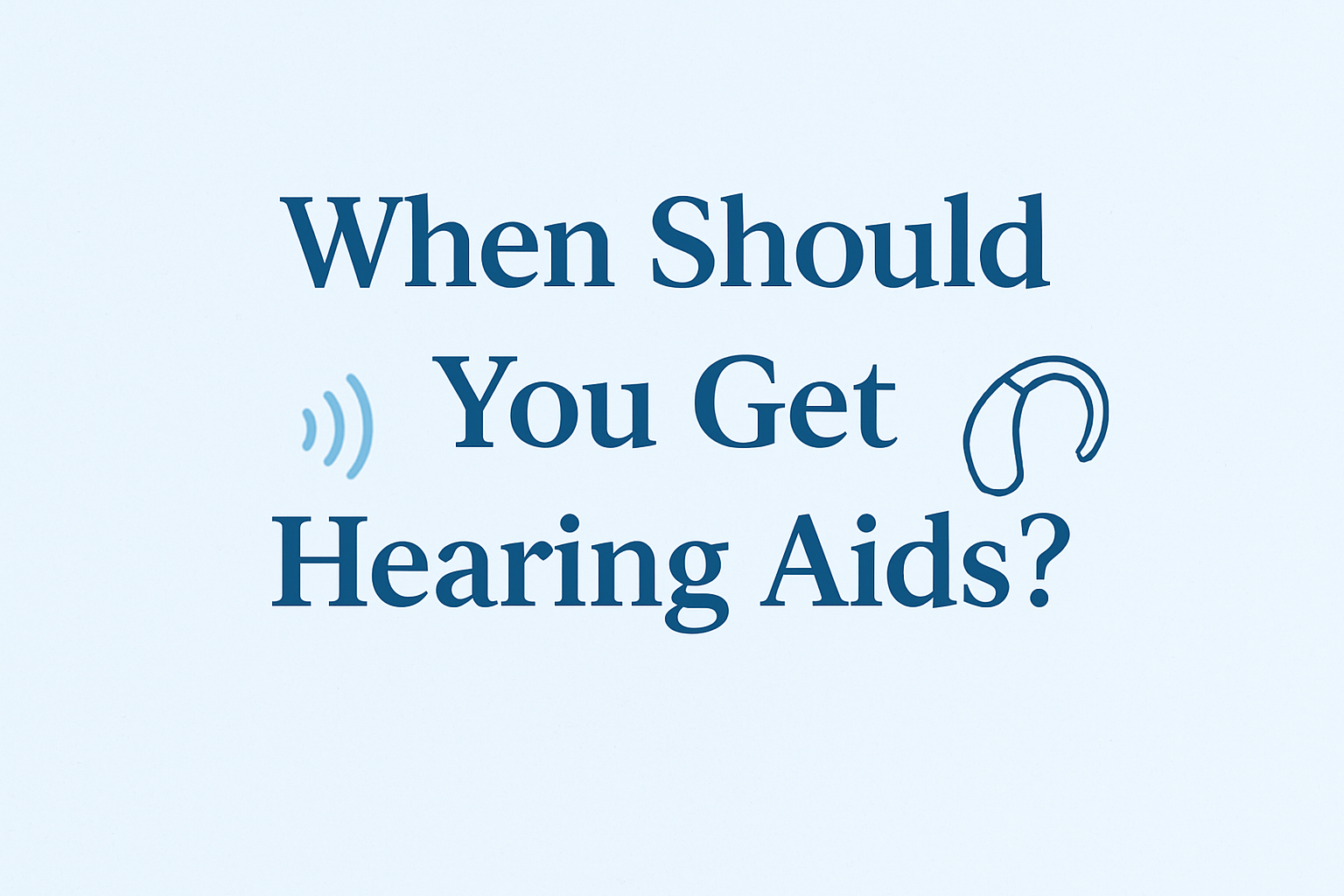Hearing loss can have a big effect on a person's quality of life, but it can be handled well with the right help. Hearing aids are often given to people with hearing loss because they are an important solution that can make it much easier to hear and talk. But where can you find these important tools? This piece will tell you about the different places you can buy hearing aids and give you tips to help you choose the best one for your needs.
What hearing aids do
Before talking about where to buy hearing aids, it is important to know what they are for. Hearing aids are basically small electronic devices that you wear in or behind your ear to help you hear better. These devices make some sounds louder, which makes it easier for people to listen, talk, and take part in daily activities. Hearing aids can help people hear better both when it is quiet and when it is loud.
Audiologists and Clinics for the Deaf
The most common places to get hearing aids are from audiologists and hearing centers. They offer a full range of services, such as hearing tests, hearing aid fittings, and changes after the initial visit. These centers are helpful because they offer professional advice and personalized service. This is especially true for people who are using hearing aids for the first time or who have severe hearing loss.
Pros:
Evaluations of hearing that are thorough and done by professionals.
Fitting and changes made just for you.
Advice on the different kinds of hearing aids in great detail.
Support and repair that keeps going.
Cons:
Compared to other ways to buy, the price may be higher.
Some people may not like having to make appointments or wait.
Big-Box Retailers
Big-box stores like Costco sell hearing aids at prices that are comparable to other stores. Many of these shops have hearing aid specialists or audiologists on staff who can do basic hearing tests and fit hearing aids.
Pros:
Prices that are fair.
Easy for people who shop at the store often.
Usually has well-known names.
Cons:
The services might not be as individualized as those at hearing centers.
Compared to specialized clinics, they don't have as many types to choose from.
Online Retailers
Internet shopping has changed the way we buy things, and hearing aids are no different. There are a number of trustworthy online stores that sell hearing aids and will ship them right to your door. This is true of online stores like Panda Hearing
Pros:
It is easy to shop from home.
Prices are more competitive because maintenance costs are lower.
Usually, you can get a free sample.
Cons:
Fittings and changes could not be done in person with a professional.
People with serious or complicated hearing loss might not be able to use it.
Companies that make hearing aids
Some companies that make hearing aids sell them straight to customers. When you buy directly from the maker, you might be able to get newer models faster than through other channels.
Pros:
Get to see the newest models.
Full facts about a product straight from the source.
Cons:
Prices might not be as good as they could be.
Only available in the types that the manufacturer makes.
How to Choose Hearing Aids
Here are some things to think about before you buy hearing aids:
Before you buy a hearing aid, you should know how bad your hearing loss is and where you'll be using it most.
Spend some time learning about the different kinds of hearing aids, their features, and how much they cost. Check out customer reviews and scores to find out how happy users are.
Professional Consultation: Having a professional test your hearing and talk to you about it can give you a more accurate report of your hearing problem and help you find the best hearing aid for your needs.
Trial Period: Ask the seller if you can try the product before you buy it. This lets you try out the hearing aid in a variety of real-life situations to make sure it works for you.
promise and After-Sale Services: Think about the seller's promise and services that come after the sale. Some of these services could be repairs, cleaning, and frequent checks.
Budget: Hearing aids can be pricey, so think about your budget and ask the provider if there are any ways to pay for them.
Conclusion
Where you buy your hearing aids can have a big effect on your general experience, the quality of the product, and how much help you get in the long run. So, it's important to think about all of your options, weigh the pros and cons, and choose the one that fits your wants and way of life the best. Don't forget that your main goal is to improve your hearing and, in turn, your quality of life.
Note: This piece is meant to be informative, not a replacement for medical advice from a doctor. Always talk to a doctor or nurse about your health issues.
What hearing aids do
Before talking about where to buy hearing aids, it is important to know what they are for. Hearing aids are basically small electronic devices that you wear in or behind your ear to help you hear better. These devices make some sounds louder, which makes it easier for people to listen, talk, and take part in daily activities. Hearing aids can help people hear better both when it is quiet and when it is loud.
Audiologists and Clinics for the Deaf
The most common places to get hearing aids are from audiologists and hearing centers. They offer a full range of services, such as hearing tests, hearing aid fittings, and changes after the initial visit. These centers are helpful because they offer professional advice and personalized service. This is especially true for people who are using hearing aids for the first time or who have severe hearing loss.
Pros:
Evaluations of hearing that are thorough and done by professionals.
Fitting and changes made just for you.
Advice on the different kinds of hearing aids in great detail.
Support and repair that keeps going.
Cons:
Compared to other ways to buy, the price may be higher.
Some people may not like having to make appointments or wait.
Big-Box Retailers
Big-box stores like Costco sell hearing aids at prices that are comparable to other stores. Many of these shops have hearing aid specialists or audiologists on staff who can do basic hearing tests and fit hearing aids.
Pros:
Prices that are fair.
Easy for people who shop at the store often.
Usually has well-known names.
Cons:
The services might not be as individualized as those at hearing centers.
Compared to specialized clinics, they don't have as many types to choose from.
Online Retailers
Internet shopping has changed the way we buy things, and hearing aids are no different. There are a number of trustworthy online stores that sell hearing aids and will ship them right to your door. This is true of online stores like Panda Hearing
Pros:
It is easy to shop from home.
Prices are more competitive because maintenance costs are lower.
Usually, you can get a free sample.
Cons:
Fittings and changes could not be done in person with a professional.
People with serious or complicated hearing loss might not be able to use it.
Companies that make hearing aids
Some companies that make hearing aids sell them straight to customers. When you buy directly from the maker, you might be able to get newer models faster than through other channels.
Pros:
Get to see the newest models.
Full facts about a product straight from the source.
Cons:
Prices might not be as good as they could be.
Only available in the types that the manufacturer makes.
How to Choose Hearing Aids
Here are some things to think about before you buy hearing aids:
Before you buy a hearing aid, you should know how bad your hearing loss is and where you'll be using it most.
Spend some time learning about the different kinds of hearing aids, their features, and how much they cost. Check out customer reviews and scores to find out how happy users are.
Professional Consultation: Having a professional test your hearing and talk to you about it can give you a more accurate report of your hearing problem and help you find the best hearing aid for your needs.
Trial Period: Ask the seller if you can try the product before you buy it. This lets you try out the hearing aid in a variety of real-life situations to make sure it works for you.
promise and After-Sale Services: Think about the seller's promise and services that come after the sale. Some of these services could be repairs, cleaning, and frequent checks.
Budget: Hearing aids can be pricey, so think about your budget and ask the provider if there are any ways to pay for them.
Conclusion
Where you buy your hearing aids can have a big effect on your general experience, the quality of the product, and how much help you get in the long run. So, it's important to think about all of your options, weigh the pros and cons, and choose the one that fits your wants and way of life the best. Don't forget that your main goal is to improve your hearing and, in turn, your quality of life.
Note: This piece is meant to be informative, not a replacement for medical advice from a doctor. Always talk to a doctor or nurse about your health issues.


